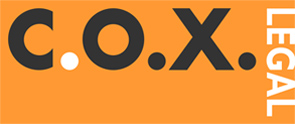According to the press release of the BGH dated November 15, 2012, the BGH ruled on the same day (case no. I ZR 74/12) that parents as connection owners are regularly not liable for illegal file sharing by their underage child. According to the BGH, this applies “in the case of normally developed children” under two conditions, namely if (i) the parents have instructed their child about the prohibition of unlawful participation and (ii) the parents had no evidence that the child was in breach of this prohibition.
According to the study, children who follow their parents’ “basic commands and prohibitions” are apparently normally developed.
According to the Federal Court of Justice, parents are not obliged to “monitor the child’s use of the Internet, check the child’s computer or (partially) block the child’s access to the Internet”. Only if the parents have “concrete evidence of an infringing use of the Internet connection by the child” would they have to take “such measures”.
The judgments of the Higher Regional Court of Cologne and the Regional Court of Cologne, which had affirmed the liability of the parents, were overturned by the BGH and the action brought by the rights holder was dismissed. The other judgments in case law, some of which assumed very extensive liability on the part of parents due to the alleged breach of supervisory duties, are therefore obsolete in this respect.
Advice note
The reasons for the verdict are not yet available. Only after their publication will it be possible to say more precisely about the consequences. This also applies to the basis and scope of liability. However, the following conclusion can probably be drawn from the press release: If the parents can prove that the two requirements are met, they are generally not liable for unlawful file sharing by their child, probably not even as a disturber. You are then neither obliged to reimburse the legal costs nor the license damage of the rights holder. They also do not have to submit a cease-and-desist declaration.
The child, in turn, can still be considered as a defendant for both the injunctive relief and the claim for damages. By “voluntarily” submitting a cease-and-desist declaration, however, at least the lawyer’s fees for the warning letter should no longer have to be borne. In this context, it would also be better to have two children where you no longer know who might have carried out the illegal file sharing…
Perhaps stuffy, but true: it would be best not to commit any illegal file sharing in the first place.
